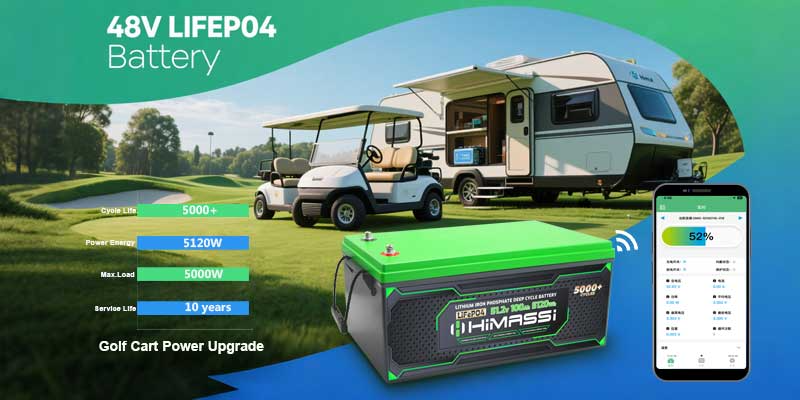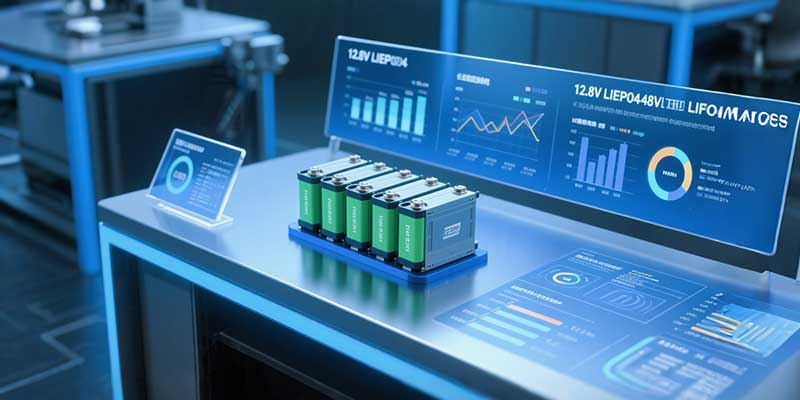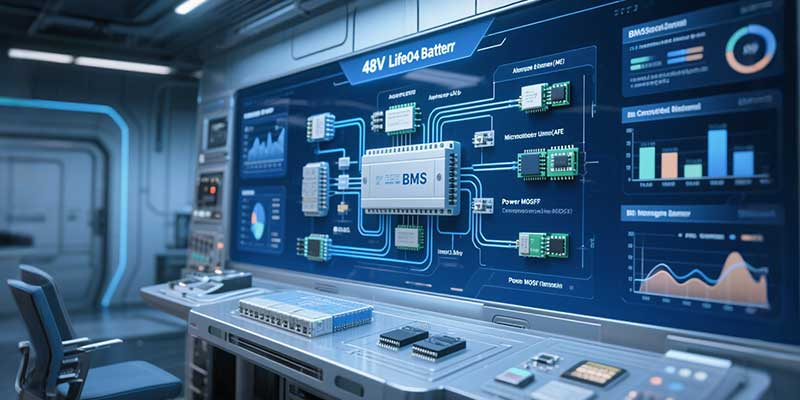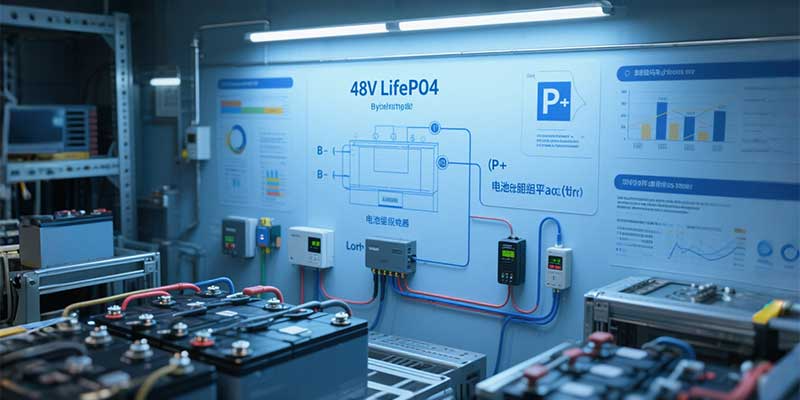At HIMAX Electronics, we are committed to providing high-performance energy storage solutions. One of the standout products we offer is Lithium Iron Phosphate batteries. These batteries have gained significant attention in recent years due to their impressive safety features, long lifespan, and sustainability. Let’s take a closer look at the materials, advantages, and applications of these powerful batteries.
What is a Lithium Iron Phosphate Battery?
A Lithium Iron Phosphate (LiFePO₄) battery is a type of lithium-ion battery that uses iron phosphate as the cathode material. While other lithium-ion batteries might rely on cobalt or nickel, LiFePO₄ batteries use more abundant, less toxic materials, making them a great choice for those seeking an eco-friendly energy storage solution.
The basic components of a LiFePO₄ battery include:
Cathode: Lithium Iron Phosphate (LiFePO₄)
Anode: Typically graphite
Electrolyte: A lithium salt dissolved in an organic solvent
The use of iron phosphate not only enhances the battery’s performance but also gives it a much safer profile compared to other battery chemistries.

Why Choose Lithium Iron Phosphate Batteries?
1.Unmatched Safety
One of the biggest selling points of LiFePO₄ batteries is their safety. These batteries are much more stable than many other lithium-ion variants, with a lower risk of overheating, fire, or explosion. This makes them ideal for high-stakes applications, such as electric vehicles and critical backup power systems.
2.Longer Lifespan
When it comes to longevity, LiFePO₄ batteries stand out. With up to 3,000 charge cycles, they outlast many of the alternatives on the market, making them a wise long-term investment. Whether you’re using them in an electric vehicle or for energy storage, you can rely on these batteries to keep performing for years to come.
3.Environmental Benefits
LiFePO₄ batteries are a great choice for those who want to reduce their environmental footprint. Unlike other battery chemistries that use rare and ethically problematic materials like cobalt, LiFePO₄ uses abundant and non-toxic materials, which helps to minimize the ecological impact.
4.Impressive Power Efficiency
While LiFePO₄ batteries are not as energy-dense as other types, such as nickel-cobalt-manganese (NCM) batteries, they offer excellent power capabilities. This makes them well-suited for applications where rapid charging and consistent power output are essential.
HIMAX Electronics: Your Trusted Partner in Lithium-Ion Battery Solutions
At HIMAX Electronics, we pride ourselves on offering high-quality lithium-ion batteries, including the advanced LiFePO₄ batteries. Whether you’re in the robotics industry, involved in renewable energy, or in need of reliable power solutions for other applications, HIMAX has you covered.
Our LiFePO₄ batteries are manufactured with the latest technology and undergo rigorous testing to ensure that they meet the highest standards of safety, performance, and efficiency. By choosing HIMAX, you’re not just purchasing a product—you’re investing in a solution that offers peace of mind, backed by years of expertise in the energy storage industry.

Where Can LiFePO₄ Batteries Be Used?
These batteries are incredibly versatile, making them suitable for a wide range of applications:
Electric Vehicles (EVs): Providing reliable and safe energy storage for electric cars, trucks, and bikes.
Robotics: Powering automated systems with high energy efficiency and long service life.
Renewable Energy: Storing solar or wind energy for later use, especially in off-grid systems.
Uninterruptible Power Supplies (UPS): Ensuring reliable backup power for critical infrastructure.
Energy Storage Systems (ESS): Helping to store and manage energy for both residential and industrial applications.
Final Thoughts
As the world continues to move towards cleaner energy solutions, Lithium Iron Phosphate (LiFePO₄) batteries offer a promising option for those looking for a safe, long-lasting, and environmentally friendly energy storage solution. At HIMAX Electronics, we are proud to be at the forefront of this technology, providing high-performance LiFePO₄ batteries that meet the needs of industries worldwide.
If you’re interested in learning more about our LiFePO₄ batteries or other lithium-ion solutions, don’t hesitate to reach out to us. We’re here to help power your next big project.




























